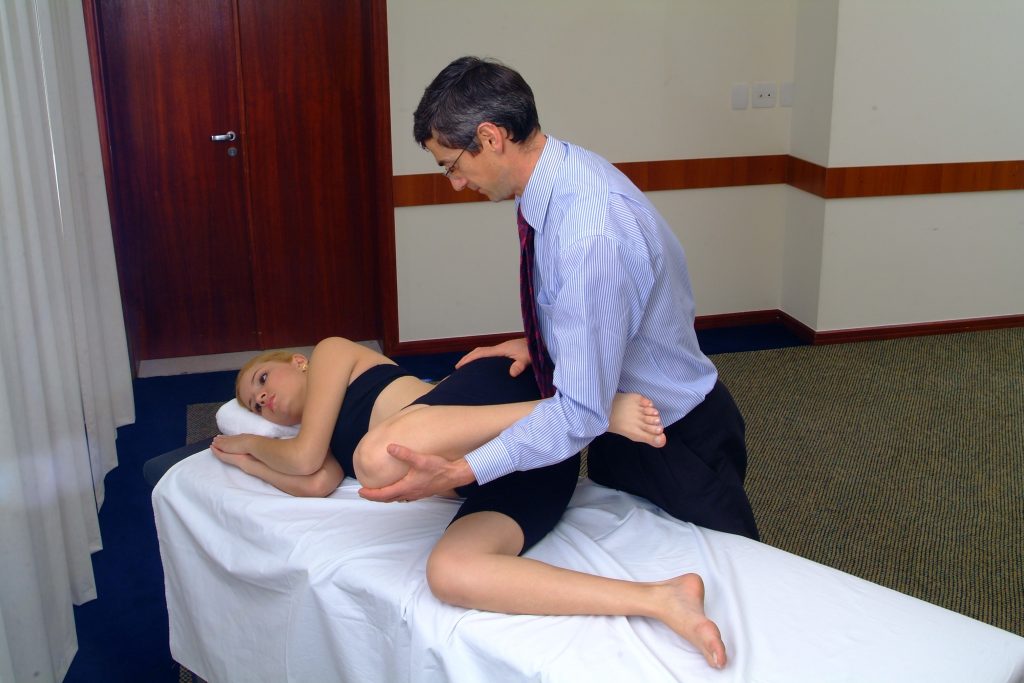Certificate in Spinal Manual Therapy

Overview
The Certificate in Spinal Manual Therapy (CSMT) is face-to-face course over 8 days in Perth, Australia or in Kuala Lumpur, Malaysia. There is also a hybrid course of 5 days face-to-face learning held in Singapore, together with extensive online learning modules.
Completing the CSMT will stimulate your clinical practice and enhance your career. This comprehensive program provides clinicians with intensive tuition in an integrated and thoroughly modern, evidence based approach to manual therapy of the spine. This program has been held in many countries around the world for 25+ years.
The primary aim of the program is to integrate joint, muscle and neural tissue based manual therapy concepts to provide a comprehensive approach to the management of neuromusculoskeletal pain disorder. The syllabus is grounded in a bio-psychosocial approach to managing spinal musculoskeletal disorders, which incorporates a range of manual therapy concepts.
Of special interest will be clinical practice, emphasising clinical examination, evaluation, interpretation, differential diagnosis and therefore classification and treatment. Management is based on identification of specific sub-groups amenable to manual therapy including movement impairment and motor control impairments, as well as neural tissue pain disorders. Screening for negative prognostic factors will also be taught as it is important to screen out patients unsuitable for manual therapy.
Assessment of movement impairment incorporates the Combined Movement approach, as well as segmental manual diagnosis. Treatment for movement impairment (articular dysfunction) is eclectic and includes a broad range of mobilisation, manipulation (high velocity thrust) and mobilisation with movement techniques.
Evaluation and management of lumbopelvic motor control impairment is designed around the O’Sullivan Classification based cognitive functional approach. Similarly for the cervical spine, motor control impairment is based on the work undertaken at the University of Queensland. Both approaches have substantial evidence of validity as well as efficacy in management.
Neural pain disorders are also sub-classified according to clinical examination findings into sensory hypersensitivity, compression neuropathy, and peripheral nerve sensitization. This sub-classification system is management driven and is backed up by supporting evidence for its validity and efficacy in management.
This course will be suitable to individuals at all levels of experience including those who are seeking new knowledge and those seeking to expand their knowledge. Whilst the course will be presented at a high level this should not be seen as a barrier to participation for those with little experience in this special area. As a result of attending the course it is anticipated that participants will gain personal satisfaction in a variety of ways that will enhance their individual requirements. There are therefore no pre-requisites for participation.
This syllabus will cover in detail the cervical, thoracic and lumbar spine regions. Participants are provided with pre-course reading material and an extensive course manual to cover all aspects of the program.
Manual Concepts’ team of highly qualified specialist musculoskeletal physiotherapists are the educators on this course. Lead by Dr. Vaidas Stalioraitis alongside Dr. Toby Hall and Dr. Kim Robinson, the team have a wealth of clinical and education experience at advanced postgraduate level. They are Specialist Musculoskeletal Physiotherapists who have been awarded Fellow of the Australian College of Physiotherapists. Find out more About us.




